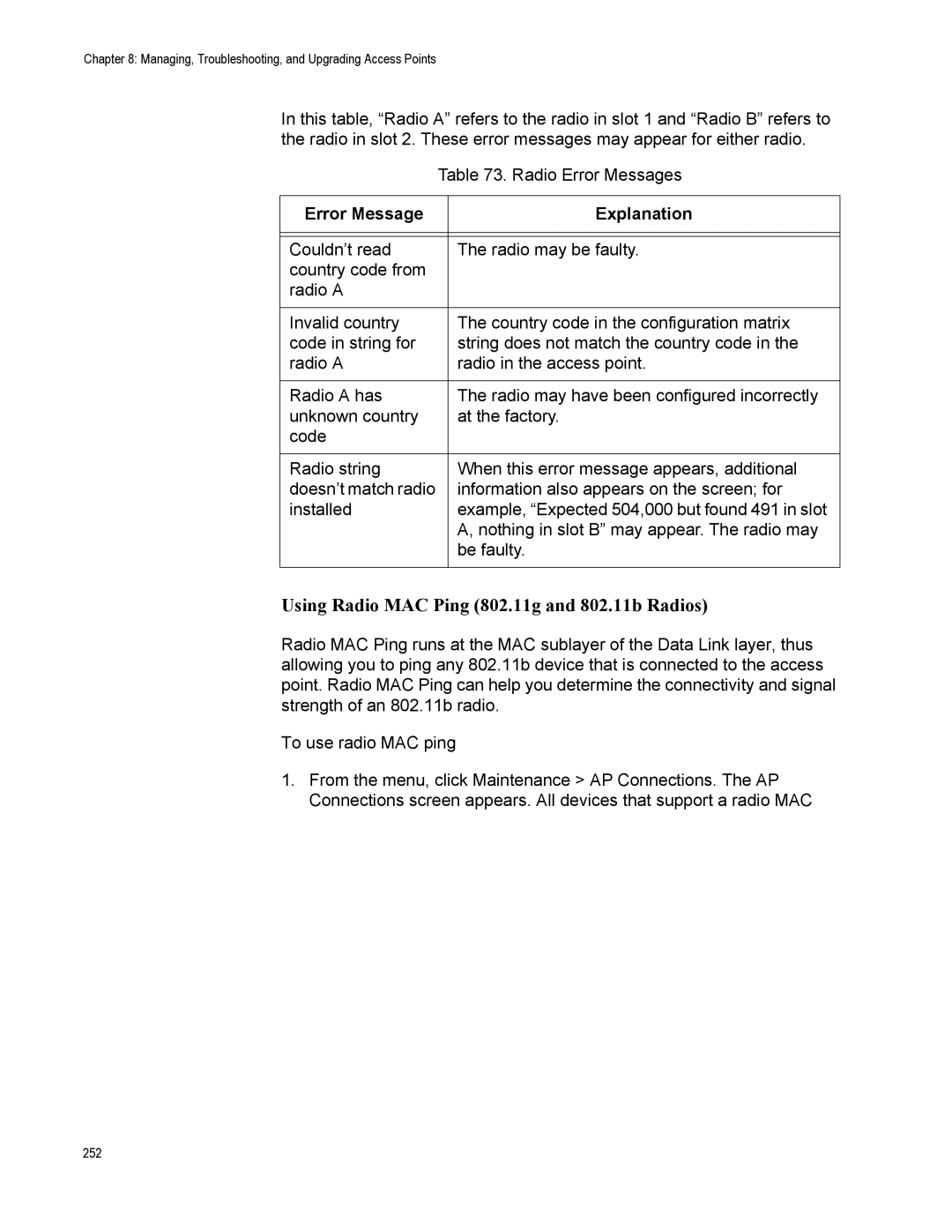Chapter 8: Managing, Troubleshooting, and Upgrading Access Points
In this table, “Radio A” refers to the radio in slot 1 and “Radio B” refers to the radio in slot 2. These error messages may appear for either radio.
| Table 73. Radio Error Messages | |
|
|
|
Error Message |
| Explanation |
|
|
|
|
|
|
Couldn’t read |
| The radio may be faulty. |
country code from |
|
|
radio A |
|
|
|
|
|
Invalid country |
| The country code in the configuration matrix |
code in string for |
| string does not match the country code in the |
radio A |
| radio in the access point. |
|
|
|
Radio A has |
| The radio may have been configured incorrectly |
unknown country |
| at the factory. |
code |
|
|
|
|
|
Radio string |
| When this error message appears, additional |
doesn’t match radio |
| information also appears on the screen; for |
installed |
| example, “Expected 504,000 but found 491 in slot |
|
| A, nothing in slot B” may appear. The radio may |
|
| be faulty. |
|
|
|
Using Radio MAC Ping (802.11g and 802.11b Radios)
Radio MAC Ping runs at the MAC sublayer of the Data Link layer, thus allowing you to ping any 802.11b device that is connected to the access point. Radio MAC Ping can help you determine the connectivity and signal strength of an 802.11b radio.
To use radio MAC ping
1. From the menu, click Maintenance > AP Connections. The AP Connections screen appears. All devices that support a radio MAC
252
